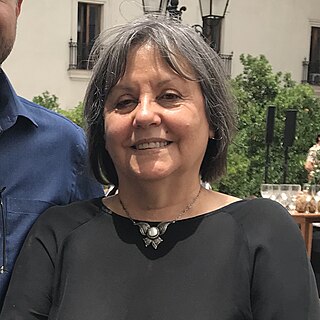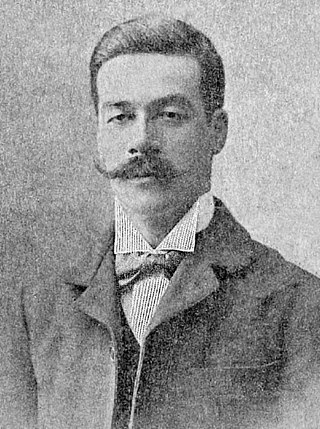Related Research Articles

The Communist Party of Argentina is a communist party in Argentina. It is a member of the Unión por la Patria, the former ruling coalition which supported former President Alberto Fernández.

Santiago José Carrillo Solares was a Spanish politician who served as General Secretary of the Communist Party of Spain (PCE) from 1960 to 1982.

The Colombian Communist Party is a legal communist party in Colombia. It was founded in 1930 as the Communist Party of Colombia, at which point it was the Colombian section of the Comintern. The party is led by Jaime Caycedo and publishes a weekly newspaper named Voz.

The National Assembly of the Socialist Left was an alliance of left-wing and far-left groups in Mexico. The only assembly of the socialist left for the creation of a "Socialist Front" was held in Mexico City April 16–17, 2005.
The history of Communism in Colombia goes back as far as the 1920s and has its roots in the ideas of the Russian October Revolution. Today guerrilla groups, self-proclaimed communists, state that they want to seize state power in Colombia by violent means, and organizations such as the National Liberation Army (ELN) continue their four decades old war with the United States-backed Colombian government.

Diamela Eltit is a Chilean writer and university professor. She is a recipient of the National Prize for Literature.

Luciano Marín Arango, better known as Iván Márquez, is a Colombian guerrilla leader, member of the Revolutionary Armed Forces of Colombia (FARC), part of its secretariat higher command and advisor to the Northwestern and Caribbean blocs. He was part of the FARC negotiators that concluded a peace agreement with President Juan Manuel Santos. On 29 August 2019, Márquez abandoned the peace process and announced a renewed armed conflict with the Colombian government.

Luis Emilio Recabarren Serrano was a Chilean political figure. He was elected several times as deputy, and was the driving force behind the worker's movement in Chile.

Julián Gómez García-Ribera, better known as Julián Gorkin, was a Spanish revolutionary socialist, writer and a central leader of the Workers' Party of Marxist Unification (POUM) during the Spanish Civil War. He was a writer of many books on political and cultural themes, as well as novels and some plays. After the Spanish Civil War, he escaped to Mexico where he became a part of the strong anti-Stalinist socialist community there. He helped obtain visas for Victor Serge and his son Vlady to enter Mexico when they had to escape from the Nazis invading France.
The First Conference of the Communist Parties of Latin America was in Buenos Aires, Argentina, June 1–12, 1929. Thirty-eight delegates, representing Argentina, Brazil, Bolivia, El Salvador, Guatemala, Cuba, Colombia, Ecuador, Mexico, Panama, Paraguay, Peru, Uruguay, and Venezuela, took part in the meeting. The only established communist party in the region that did not participate was the Communist Party of Chile, which at time suffered a period of harsh repression under the government of Carlos Ibáñez del Campo.
Savitsky ; other transliterations: Savicki, Savicky, Savitski, Savitskiy, Savitzky, Sawicki, Sawitzki, Sawizkii), feminine: Savitska or Savitskaya, is a Slavic surname. Notable bearers include:

The Revolutionary Left Front is a political party in Bolivia, founded in 1978.
José María Aricó was a prolific essayist, militant activist, and one of the driving forces in creating the New Intellectual Left within Argentina. Strongly influenced by Marx and Marxist thinkers like Antonio Gramsci, Kautsky, and others, Aricó would go on to promote these intellectuals through his own writings, translations and teachings.

The Labour Gathering Party was a political party in Argentina, led by José Penelon. It emerged from a dissident wing of the Communist Party of Argentina in the late 1920s. The party would exist for decades, mainly based in Buenos Aires, but its influence waned over the years.

Manuel Antonio Garretón is a Chilean sociologist, political scientist and essayist. He received the National Prize for Humanities and Social Sciences in 2007 for his lifetime contribution to the field.
Víctor Julio Merchán (1909–1980s), known by pseudonyms 'Enrique Andrade', 'Pedro José Abella' and 'Juan García', was a Colombian politician.

The Militarized Communist Party of Peru is a political party and militant group in Peru that follows Marxism–Leninism–Maoism and participates in the communist insurgency in Peru. It is considered a terrorist organization by the government of Peru. The MPCP operates primarily in the VRAEM area and is involved in the area's coca production. Comrade José has been the leader of the MPCP since its official creation in 2018 after its final split from the declining Shining Path guerilla group.

The Madrid Forum is an anti-communist organization created on 26 October 2020 by the Disenso Foundation think tank of the far-right Spanish political party Vox. Its founding document, the Madrid Charter, including signatures by members of the Republican Party in the United States, Venezuelan opposition members, Cuban dissidents, Fujimorists of Peru, and other representatives of political parties from Latin America.

Gloria Amparo de las Mercedes Gaitán Jaramillo is a Colombian writer, diplomat, and politician. She was a member of the Chamber of Representatives from 1970 to 1974, and served as Colombia's ambassador to Romania in 1982.
References
- ↑ Guerra, Sergio/Prieto, Alberto. Cronologia del movimiento obrero y las luchas por la revolución socialista en América Latina y el Caribe (1917-1939). Havana: Casa de las Americas, 1980. p. 42
- 1 2 3 Clara Rocio Rodriguez Pico. Los retos de la democracia: viejas y nuevas formas de la política en Colombia y América Latina . Fundación Foro Nacional por Colombia, 2005. p. 100